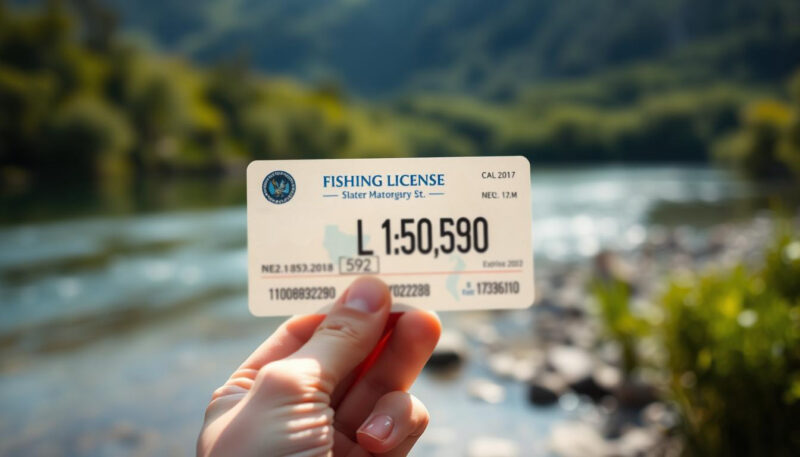Heading out for a fishing trip is always exciting, whether you’re planning to reel in a big catch or simply enjoy a day on the water. Before you cast your line, it’s crucial to familiarize yourself with
In the U.S., obtaining a fishing license isn’t just about following the law; it’s about contributing to the sport you love. License fees directly support conservation efforts, habitat restoration, and fish stocking programs across the country.
This guide will cover everything anglers need to know about fishing license requirements across all 50 states, including the different types of licenses available and how to obtain them.
Key Takeaways
- Understand the importance of fishing licenses for conservation efforts.
- Learn about the different types of fishing licenses available across the USA.
- Discover how to obtain the license online, in-person, or by phone.
- Find out how license fees support habitat restoration and fish stocking programs.
- Stay updated on changing regulations and requirements.
Licenses and Their Importance
Fishing licenses are more than just a regulatory requirement; they play a crucial role in conservation efforts across the United States. By obtaining a license, anglers contribute to the preservation of aquatic ecosystems and support fishery management programs.
Fishing licenses are permits issued by state or federal authorities that grant anglers the right to fish in designated areas. These licenses are essential for managing fish populations and ensuring sustainable fishing practices. The revenue generated from license sales is directed towards various conservation initiatives.
How Fees Support Conservation
One hundred percent of license fees go directly toward conservation and restoration efforts. The Sport Fish Restoration Program, for instance, distributes millions of dollars annually to state fish and wildlife resource agencies. These funds are dedicated to restoration and enhancement projects across the country.
The allocation of fishing license revenue to various conservation initiatives is detailed in the following breakdown:
| Conservation Initiatives | Allocation Percentage | Description |
|---|---|---|
| Fish Habitat Restoration | 30% | Projects aimed at restoring and enhancing fish habitats. |
| Fish Stocking Programs | 25% | Programs that stock fish in lakes, rivers, and reservoirs. |
| Research and Management | 20% | Research on fish populations and management strategies. |
| Public Access and Education | 15% | Improving public access to fishing areas and educational programs. |
| Conservation Law Enforcement | 10% | Enforcement of fishing regulations and conservation laws. |
The Sport Fish Restoration Program leverages fishing license fees along with excise taxes on fishing equipment to fund conservation projects. Specific conservation projects funded through fishing license revenues have improved fishing opportunities and habitat quality across different states.
For example, license fees have supported research on fish populations, habitat needs, and effective management strategies. Additionally, conservation funding has enabled fish hatcheries and stocking programs that enhance recreational fishing opportunities.
When anglers purchase a fishing license, they become active participants in conservation rather than just consumers of a natural resource.
The total conservation funding generated through fishing licenses nationwide has had a significant impact on aquatic ecosystems, underscoring the importance of these licenses in maintaining healthy fish populations and supporting fishery management programs.
Types of Licenses Available Across the USA
Fishing enthusiasts in the USA can choose from various license types, each designed for specific fishing conditions and durations. The diverse range of licenses caters to different fishing methods, types of water, and residency statuses, ensuring that anglers can find the right license for their needs.
Freshwater vs. Saltwater Licenses
One of the primary distinctions in fishing licenses is between freshwater and saltwater licenses. Freshwater licenses are required for fishing in lakes, rivers, and ponds, while saltwater licenses are needed for coastal and ocean fishing. Some states issue a single license that covers both freshwater and saltwater fishing, while others require separate licenses.
Resident vs. Non-Resident Licenses
Another important distinction is between resident and non-resident licenses. Resident licenses are available to individuals who live within the state, often at a lower cost than non-resident licenses, which are required for visitors.
The specific residency requirements and license fees vary by state.
Short-Term vs. Annual Licenses
Anglers can also choose between short-term and annual licenses. Short-term licenses, which can be daily, weekly, or multi-day, are ideal for tourists or occasional anglers. Annual licenses, on the other hand, are more cost-effective for frequent fishers. Some states also offer multi-year or lifetime licenses for dedicated enthusiasts.
When deciding between short-term and annual licenses, anglers should consider their fishing frequency and patterns. While short-term licenses offer convenience and flexibility, they can be more expensive per day. Annual licenses, by contrast, provide a cost-effective solution for regular anglers.
The cost of fishing licenses varies significantly across states, with some offering more affordable options than others. Digital license options have also made it easier for anglers to obtain licenses, especially for spontaneous fishing trips.
How to Obtain a Fishing License in the United States
@takemefishing_ First things first, make sure you purchase a fishing license! #takemefishing #findyourbestself ♬ original sound – Take Me Fishing
The process involves several steps, including choosing the right type of license and providing necessary documentation.
Online License Purchase Options
Many states offer the convenience of purchasing fishing licenses online. This can be done through official state wildlife agency websites or through licensed vendors. Online purchases often require creating an account, providing personal details, and paying the license fee.
For instance, anglers can visit the state’s wildlife agency website, navigate to the licensing section, and follow the prompts to complete their purchase. Some states also offer mobile apps for license purchases, making it even more accessible.
In-Person Purchase Locations
For those who prefer a more traditional approach or need assistance, licenses can also be purchased in person. Common locations include tackle shops, sporting goods stores, and state wildlife agency offices. These locations often provide the opportunity to ask questions and get advice from local experts.
When purchasing in person, it’s essential to bring the required documentation to ensure a smooth transaction. This typically includes a form of identification and proof of residency.
Required Documentation for License Applications
When applying for a fishing license, anglers need to provide certain documentation to verify their eligibility. The specific requirements can vary depending on the state and the type of license being applied for.
- Identification requirements typically include a government-issued photo ID, such as a driver’s license or passport.
- Proof of residency is often necessary, which can be demonstrated with utility bills, voter registration cards, or tax documents.
- Special documentation may be required for discounted licenses, such as proof of age for senior licenses or military ID for veteran discounts.
- Documentation requirements may differ for online versus in-person applications, so it’s crucial to check the state’s specific guidelines.
Preparing the necessary documentation in advance can streamline the license application process. Accurate information is also vital to avoid potential legal issues.
By understanding the documentation requirements before applying for a license, anglers can prevent delays and complications. Whether purchasing online or in person, having the correct information ready is key to a successful application.
Age Requirements and Exemptions
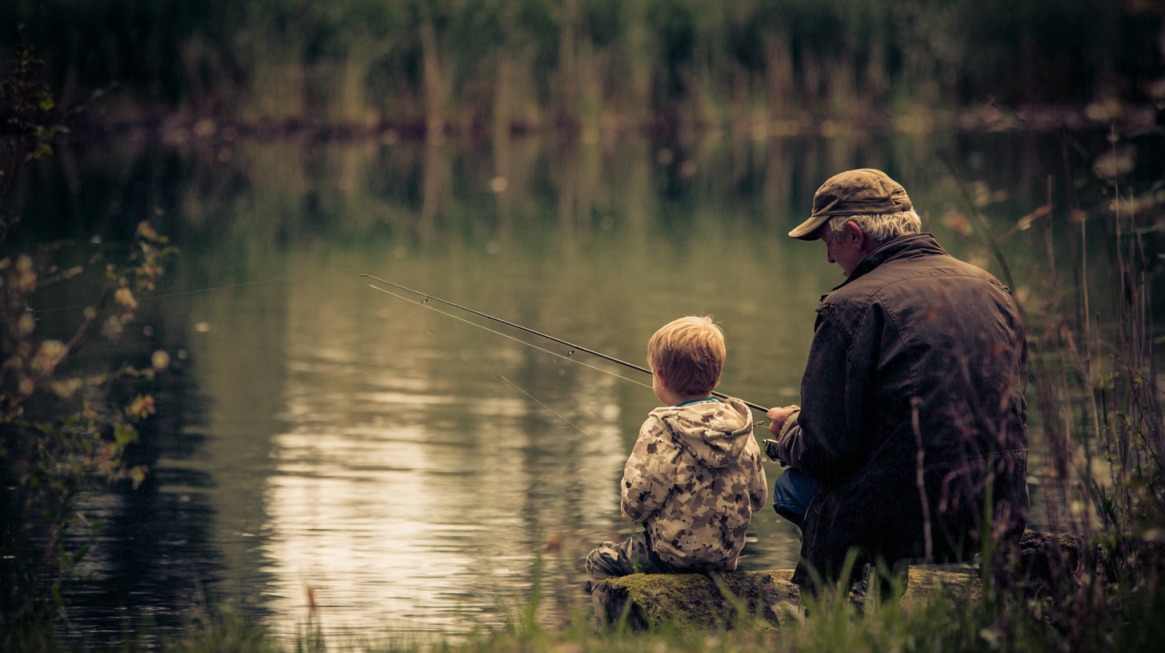
As angling continues to be a popular recreational activity, understanding the age-related regulations and exemptions for fishing licenses becomes increasingly important.
Fishing license regulations are not uniform across the United States; they vary significantly from state to state, with age playing a crucial role in determining who needs a license and who is exempt.
Youth Fishing Regulations
Many states have implemented special regulations for young anglers, aiming to encourage the next generation of fishermen. These regulations often include exemptions or discounted licenses for children, typically under the age of 16 or 18, depending on the state’s laws.
For instance, some states offer free fishing licenses to children on certain days of the year or during specific events.
View this post on Instagram
Senior Citizen Exemptions and Discounts
Senior citizens often enjoy discounted or even free fishing licenses as a way to encourage outdoor recreation and acknowledge their contributions to the community. The age at which you qualify for a senior license can vary, but it’s often set at 65 or older.
States also offer various types of senior fishing licenses, including discounted annual licenses, lifetime senior licenses, and complete exemptions. To qualify, seniors typically need to provide documentation proving their age and residency.
| State | Qualifying Age for Senior License | Type of Senior License |
|---|---|---|
| California | 65+ | Discounted Annual License |
| Florida | 65+ | Lifetime Senior License |
| New York | 70+ | Free Fishing License |
Some states combine senior status with residency requirements to determine eligibility for discounts or exemptions. These policies not only make fishing more accessible for older adults but also reflect a recognition of their lifelong contributions to conservation through previous license purchases.
States with particularly generous senior fishing license policies include those that offer free or significantly discounted licenses. On the other hand, some states have more standard approaches, requiring seniors to purchase licenses at the regular rate.
Fishing License Requirements USA: State-by-State Breakdown
Understanding fishing license requirements is crucial for anglers traveling across the United States, as regulations vary significantly from state to state. The complexity of these regulations necessitates a comprehensive guide to help fishermen navigate the diverse requirements across different regions.
Northeast Region States
The Northeast region, comprising states like Maine, New Hampshire, Vermont, Massachusetts, Rhode Island, Connecticut, New York, New Jersey, and Pennsylvania, has its unique set of fishing license requirements.
Generally, these states require licenses for both residents and non-residents, with varying fees and regulations regarding the types of fish that can be caught.
For instance, some states in this region offer discounted licenses for seniors and youth, while others have specific stamps required for certain species like salmon or trout.
Southeast Region States
The Southeast region, including states such as Florida, Georgia, Alabama, Louisiana, and the Carolinas, presents a diverse landscape of freshwater and saltwater fishing opportunities. Fishing licenses in these states are typically required for both residents and non-residents, with specific regulations for different types of fishing.
Some Southeast states have unique requirements, such as Florida’s saltwater fishing license, which is required in addition to a general freshwater fishing license for those targeting saltwater species.
Midwest Region States
The Midwest, with its numerous lakes and rivers, offers extensive fishing opportunities. States like Michigan, Wisconsin, Minnesota, Ohio, and Indiana have their own regulations regarding fishing licenses, with some offering special permits for certain species or fishing methods.
For example, Michigan requires a license for both residents and non-residents, with specific stamps for trout and salmon. Understanding these requirements is crucial for planning a successful fishing trip in the Midwest.
Western Region States
The Western United States, encompassing states like California, Oregon, Washington, Alaska, and Hawaii, is renowned for its diverse and abundant fishing resources. The region includes both freshwater and saltwater fishing opportunities, with regulations varying significantly from state to state.
Western states often have special provisions for anadromous fish like salmon and steelhead, and some require additional permits for fishing in national parks or forests. For instance, Alaska has a unique king salmon stamp, while California offers a two-rod validation for increased fishing efficiency.
Fishing in the Western states also involves understanding regulations for tribal lands, which are particularly relevant in this region. Additionally, popular destinations like Yellowstone National Park and the Colorado River system have specific rules that anglers must follow.
Cost Comparison Across States
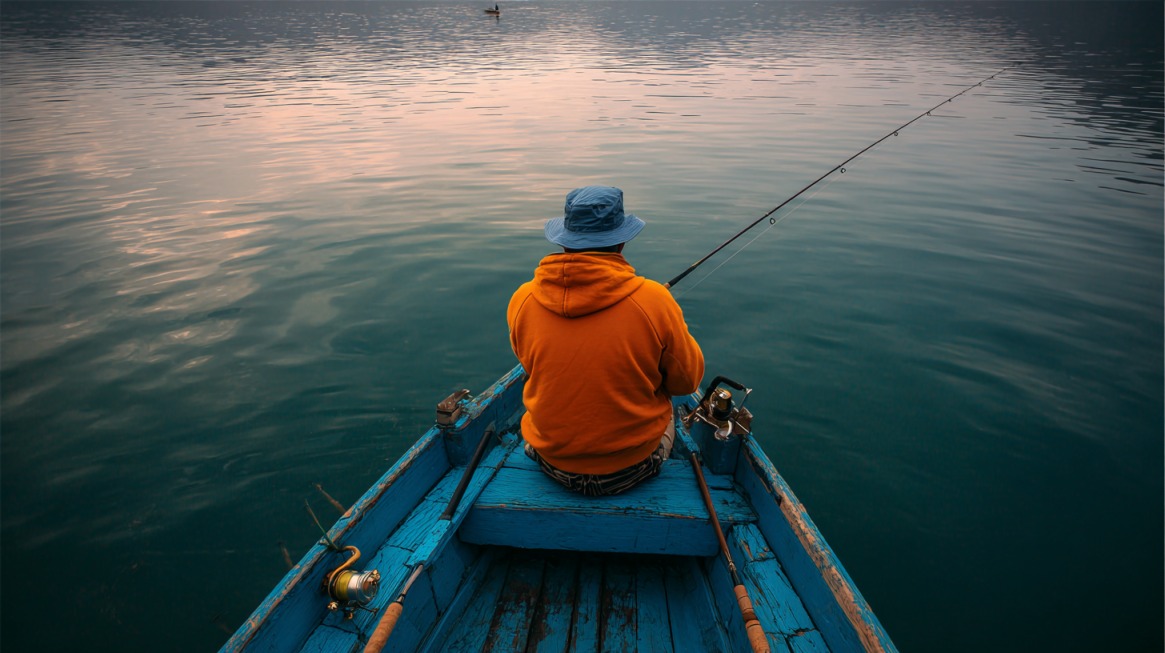
Fishing license costs vary significantly across the United States, reflecting the diverse fishing opportunities and management practices. The cost of a fishing license is influenced by several factors, including the type of license, the state’s conservation efforts, and the quality of fishing experiences offered.
Most Affordable States
Some states offer very affordable fishing licenses, making it easier for anglers to enjoy their hobby without a significant financial burden. For instance, certain states provide combination licenses that cover both freshwater and saltwater fishing, offering convenience and value to anglers who fish in multiple environments.
These affordable licenses often support the state’s conservation efforts and fisheries management programs. Anglers can benefit from lower costs while still contributing to the sustainability of fish populations and their habitats.
States with Premium License Fees
On the other end of the spectrum, some states have higher-than-average fishing license fees. These premium prices are often justified by the exceptional fishing opportunities, intensive management programs, and extensive conservation efforts in place.
States with premium license fees typically offer enhanced services such as better access points, more frequent stocking, and improved habitat management.
For example, some states use the revenue from license fees to fund projects that improve fish habitats, enhance fishing infrastructure, and support research into fisheries management.
- States with premium fees often provide additional value through longer license terms or the inclusion of normally separate permits, making the higher cost more justifiable for frequent anglers.
- Anglers can evaluate whether a premium-priced license represents good value based on their specific fishing interests and the quality of fishing opportunities available.
- Examples of successful conservation initiatives funded by premium license revenue can be seen in various states, highlighting the positive impact of higher license fees on fisheries management.
The higher license fees in some states reflect investments in the resource rather than just higher administrative costs. By paying a premium for their license, anglers are contributing to the long-term sustainability of fish populations and the overall quality of fishing experiences.
Special Fishing Permits and Add-Ons

Beyond the standard fishing license, anglers may need to acquire special permits or endorsements for specific types of fishing activities. These additional permits are designed to manage fish populations more effectively and ensure that fishing practices remain sustainable.
Trout Stamps and Species-Specific Endorsements
For anglers targeting specific species, such as trout, additional stamps or endorsements may be required. These stamps often come with their own set of regulations and fees, which contribute to conservation efforts focused on the targeted species.
- Trout stamps are typically required for fishing in designated trout waters.
- Species-specific endorsements may be needed for fishing certain types of fish, like salmon or steelhead.
Commercial Fishing Licenses
Commercial fishing licenses represent a different regulatory framework, designed for those who fish as a business rather than for recreation. These licenses come with more stringent requirements, including experience, equipment specifications, and reporting obligations.
Commercial fishing is heavily regulated to ensure sustainable harvest levels and minimize environmental impact. The fees associated with commercial fishing licenses are significantly higher than those for recreational licenses, reflecting the commercial nature of the activity.
| Type of License | Requirements | Fees |
|---|---|---|
| Recreational | Basic application, proof of residency | $20-$50 |
| Commercial | Experience, equipment specs, reporting | $200-$1,000+ |
| Trout Stamp/Endorsement | Additional application, species-specific | $5-$20 |
For those engaged in or planning to engage in commercial fishing, understanding the regulations and requirements is crucial. The table above provides a comparison of the different types of licenses and their associated requirements and fees.
Fishing on Private Property and Special Waters
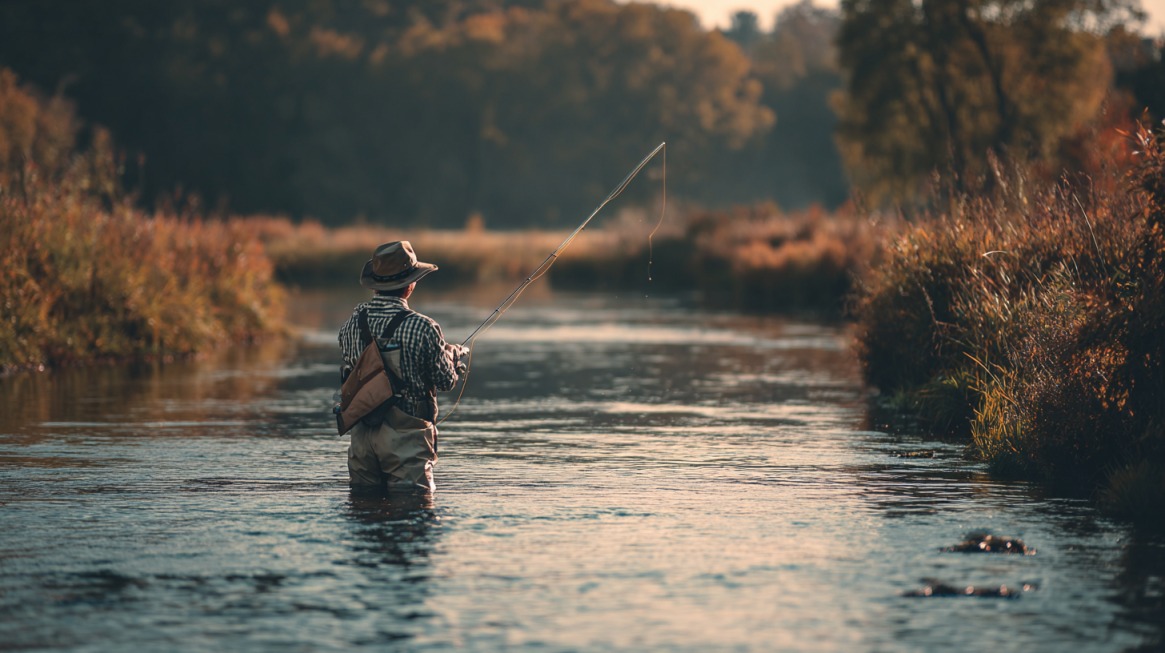
Understanding the regulations for fishing on private property and in shared border waters is crucial for anglers. While fishing on private property can offer a more secluded experience, it’s essential to know whether a fishing license is required.
License Requirements for Private Ponds and Lakes
Fishing in private ponds and lakes typically doesn’t require a state fishing license if the body of water is entirely on private property and not connected to public waters. However, regulations can vary by state, so it’s crucial to check local rules.
For instance, some states may require a license even for private waters if they’re stocked with fish from public waters or if they’re connected to a public water body during certain times of the year.
Fishing in Shared Border Waters
Shared border waters, such as the Mississippi River, the Great Lakes, and the Columbia River, present unique challenges for anglers. These waters often form boundaries between states or countries, complicating license requirements and fishing regulations.
Some neighboring states have made agreements known as Interstate Agreements or Reciprocal Licenses, under which a license from one state might be valid in parts of another, especially for bodies of water they share.
For example, when fishing in the Great Lakes, anglers need to understand the specific licensing arrangements and regulations that apply. The following table summarizes the licensing requirements for some major shared waters:
| Shared Water Body | States Involved | Licensing Requirement |
|---|---|---|
| Mississippi River | Minnesota, Iowa, Illinois, Missouri, Kentucky, Tennessee, Arkansas, Louisiana | License from any bordering state is often valid |
| Great Lakes | Michigan, Wisconsin, Illinois, Indiana, Ohio, Pennsylvania, New York, Minnesota | Varies by lake and state; often requires a license from one of the bordering states |
| Columbia River | Oregon, Washington | Either Oregon or Washington license is valid |
It’s also important for anglers to be aware of the different catch limits, seasons, and other regulations that may apply on each side of a shared border water. Understanding these regulations can help ensure a compliant and enjoyable fishing experience.
Penalties and Consequences for Fishing Without a License
Fishing without a license can have serious repercussions, affecting both your finances and your ability to enjoy your favorite hobby in the future. The consequences of fishing without a license can be dire, affecting not just your wallet but also your fishing privileges.
Common Fines and Legal Repercussions
Fishing without a valid license can result in significant fines. These fines vary by state but can be substantial, often ranging from $100 to over $1,000 for repeat offenders. In addition to fines, individuals may face court appearances and potentially even jail time for severe or repeated violations.
The legal repercussions extend beyond immediate fines. A conviction for fishing without a license can lead to a criminal record, which may have long-term impacts on various aspects of life, including employment opportunities and personal reputation.
How Violations Affect Future License Eligibility
Fishing violations can significantly impact an angler’s ability to obtain licenses in the future. Many states implement point systems for violations, where accumulated points can lead to license suspension or revocation.
The duration of these suspensions varies based on the severity of the offense and the number of previous infractions.
- Minor infractions might result in a short suspension, typically up to a year.
- Serious offenses, such as fishing in closed areas or without a license after previous suspensions, can lead to longer suspensions or even permanent revocation.
- Interstate violation compacts mean that violations in one state can affect license eligibility in other states, emphasizing the importance of complying with regulations across state lines.
For commercial fishing licenses, eligibility is typically subject to stricter standards regarding prior violations. Serious or repeated offenses can jeopardize a commercial fisher’s livelihood.
Even lifetime or multi-year licenses can be affected by serious violations, potentially resulting in the loss of these privileges. Maintaining a clean record is crucial not just for avoiding immediate penalties but also for preserving future fishing opportunities.
The process for license reinstatement after a suspension or revocation often involves additional requirements or fees, further emphasizing the importance of adhering to fishing regulations to avoid such consequences.
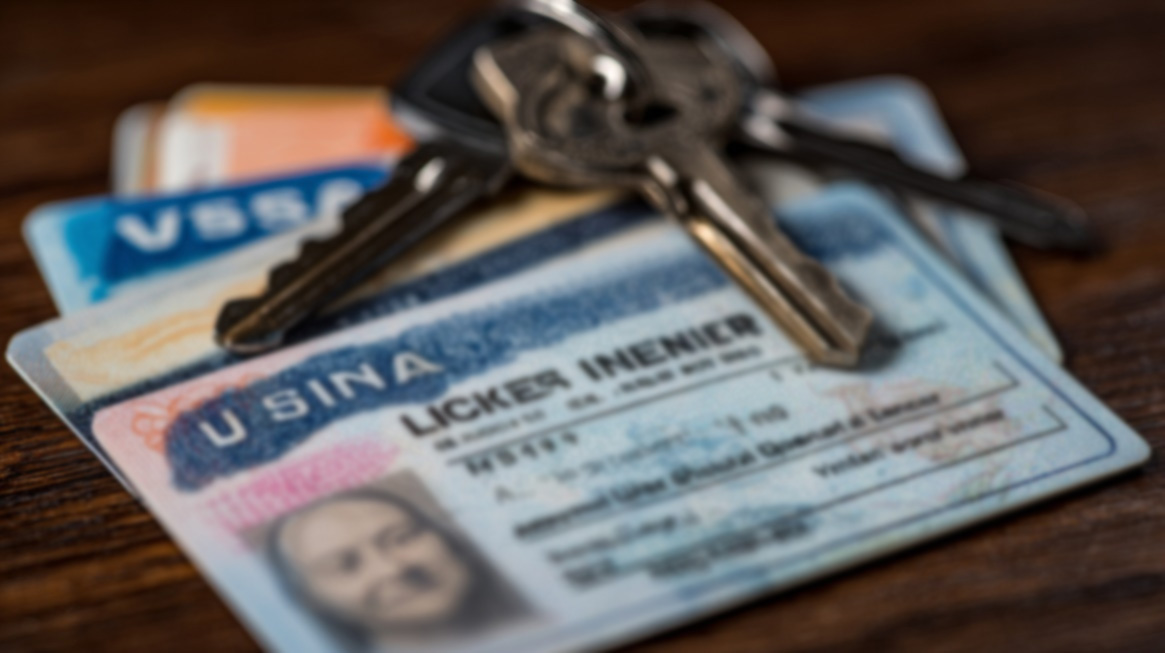
Bottom Line: Responsible Angling Through Proper Licensing
Getting a fishing license isn’t just the law — it’s how anglers help keep the sport alive. Those fees go straight into conservation: restoring habitats, stocking fish, and keeping waters clean.
Whether you’re a local or visiting, knowing which license you need (freshwater, saltwater, short-term, or annual) matters. Rules vary by state, so a little homework goes a long way.
But it’s more than just the paperwork. Responsible fishing means handling fish with care, harvesting ethically, and respecting the environment.
Bottom line? A license supports the fish, the waters, and future anglers. It’s a small step that makes a big difference.

